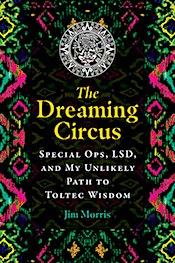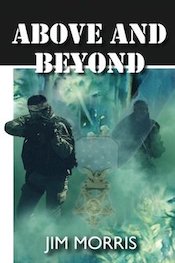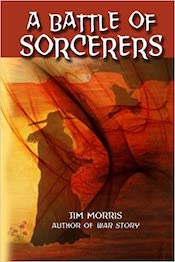Recently a thing has happened which has greatly and adversely effected my time. I have discovered that I can watch TV shows that I’ve missed on Amazon Prime. Very quickly after making that discovery I gobbled up all of Justified, the first two seasons of Game of Thrones and most of the first five seasons of True Blood.
Game of thrones uses supernatural themes somewhat sparingly, and True Blood depends entirely on them. This set me to musing as to the psychological reasons behind the popularity of vampires, werewolves, zombies, and the like. I’ve always liked vampire themed stories. For a long time my favorite television show was Buffy the Vampire Slayer, which I loved for Joss Whedon’s terrific dialogue, and the depth and accuracy of the characterizations. I decided that vampires were popular because they represented a personality type that is rife within the general population, but what was it? I considered psychopaths, then decided that psychopaths were maybe a bit too crazy. But sociopaths fit the vampire legend to a T.
Sociopaths pretend to be normal people, and really are pretty close to normal, but they thrive by sucking the life force from others with not a care for their victims’ well-being. They hide, not in the night, but in the shadows; that’s close enough. They don’t live forever, but the type does. Spiritually the type is close enough, with spiritual parallels for every aspect of the vampires’ physical life.
Werewolves are easy; emergency rooms fill up on full moon nights. Clearly some people become bestial when the moon is full.
It’s a fairly good guess that the legends of fairies are based on the gay. It’s even a nickname. I think there’s more to that legend than that, but what that more is does not come readily to mind. But when cultures as diverse as the Irish and the Cherokee both have legends of “little people” that live in dimensional portals built into hillsides then there is something to it, though what is still an open question.
But what really puzzled me were the psychological and sociological underpinnings of the zombie legend. Zombie movies have become an important sub-genre in the last twenty or thirty years. Sure, that legend comes from Haiti and voodoo, and some recent analyses have explained it as some sort of drug that voodoo priests use to bend somnambulant victims to their will. But why the sudden popularity of that legend in our culture?
Then it hit me. I have read that morticians report that there are so many preservatives in our food that American bodies are decaying more slowly than in years past. So, preservatives in food, rampant overprescription of drugs with varying and interlocking side effects, GMO foods (Frankenfoods), truly this is the night (and day) of the living dead. Look around and you see a landscape full of people with unhealthy bodies and diminished capacities, and an absence of will. People get that, and they see what’s being done to them, and to those they love. They are being turned into compliant automatons. They don’t eat other people, but they are destroying the planet with the same chemicals and perverted genetics that are turning them into zombies.
Most people can’t face this head on, but they sense it subconsciously, and the myth structure of our society increasingly reflects it.
Perhaps the myths can figure in a solution to these societal trends. The good guy vampire who is trying to resist his awful urges is increasingly featured in these stories, Angel in Buffy and later in his own show, Vampire Bill and Eric in True Blood.
Zombie flicks are something I hate and have always avoided, but judging from trailers on television they are increasingly being played for laughs, with more self-aware and funny zombies.
The Wall Streeters who caused the financial meltdown are a perfect parallel to the vampire legend, but hopefully there are more and more people in the financial world who realize that eating the seed corn is not a viable economic model.
And zombies are a perfect match to the average consumer, which consumer is hopefully waking up to that fact.
—
I sent the foregoing to a friend, Kater Cheek, who writes a couple of great fantasy series on Kindle. Her mom, Helen Pratt, is one of my Toltec buddies, and a few years back she asked me to read an unpublished novel by her daughter. As you can imagine I get a lot of requests like that and I wasn’t wild to do it, but I like her mom a lot, so I said I would.
I gobbled it up the first night I had it and begged for more. If you like that kind of stuff what I read was the Kit Melbourne series, which is ongoing, available on Kindle, and which I am still reading with great pleasure. Here is her reply:
“I’ve heard the theory that psychopaths are vampires. I think it’s a fairly solid one. In Romania, vampires are closer to zombies. They’re relatives who rise from the grave and try to feast on blood. Ever see “The Vampire Diaries?” it will make you hate vampires. Bunch of whiny, spoiled, self-absorbed pretty people. Thirty seconds of that show makes me want to stake the lot of them. Seriously. the only things that inspire faster violent hatred in me are anime bunny girls.
“I’ve heard some people say that people act weird during the full moon, and I understand the connection with werewolves, but why are werewolves mostly men, then? You’d think women would be more likely to have beast-human-beast changes depending on the moon phase. I like the theory that the werewolf legend comes from rabies.
“My favorite theory about fairies comes from the notion that fairies are Neanderthals. I read recently that it’s likely that Neanderthals didn’t ‘die out’ so much as ‘breed in’. Some have espoused the notion that red hair indicates Neanderthal ancestry. That’s far fetched, but a book on genetics I read recently says that people of Northern European extraction are the ones most likely to have Neanderthal DNA. This works with ‘living in the hills’ ‘little’ and ‘iron’ things, as Neanderthals didn’t have any iron working. They’re like humans, but they aren’t humans, and they sometimes breed with people. It also works that the place where you have the strongest fairy legends are Ireland and Scandinavia, where the Cro-Magnons came latest.
“I remember finding out that zombieism was a real thing. Papa Doc’s henchmen would put blowfish powder in your shoes, and you’d go into a coma. They’d bury you shallowly, and when you came out of the coma, you’d be brain damaged and tractable. Horrifying!
“My personal theory is that the reason zombies are popular is that they let people get their survivalist/warrior/hero on without the moral conflict of killing an actual person. You get to kill people, but they’re already dead, so it’s okay.
“Personally, I find zombies totally icky, even though they have been good for my career. Unless they are super-cute, like in Plants vs. Zombies, I avoid anything with zombies in it.”
I like most of her ideas about as well as mine, and they both reinforce the idea that supernatural beings in myth are markers for real trends in society. Except, I like my zombie theory better because it opens it up a reason to rant against things I don’t like, such as GMO foods and overmedication.
Probably the reason werewolves are thought of more as male is that when guys go crazy under a full moon they put people in the emergency room, whereas women just get bitchy.
So, maybe all of our lives are templates for horror series. For myself I’d rather live in a Joss Whedon series than a Wes Craven series.




